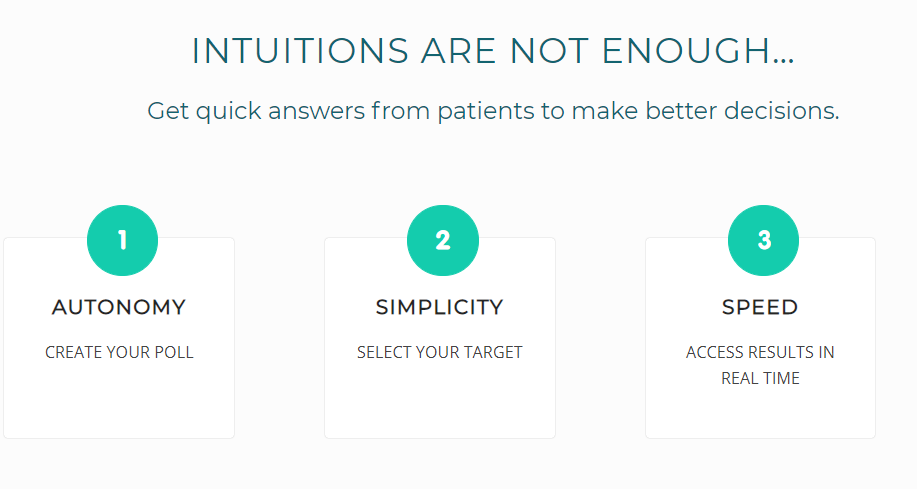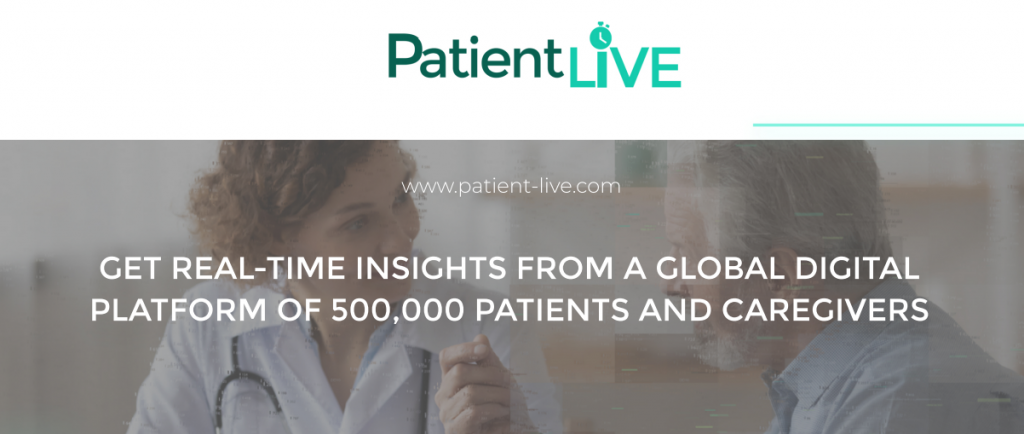I’m Gilda Teissier, Marketing Director at EvidentIQ and I recently met with Emilie Pain, Data Scientist at Carenity, part of the EvidentIQ Group.
Whether to develop new products, services, design clinical trials or marketing strategies, first-hand access to patients and caregivers is increasingly becoming a cornerstone for life sciences industries.
By collaborating and engaging with patients in the decision-making process, health providers can make better decisions regarding a patient’s health. Therefore, having access to accurate information reported by patients and caregivers is essential to understand patient experience and be patient-centric, identify unmet needs in terms of products, services and information, test concepts of services and campaign messages, define Target Product Profiles, and optimize the design of clinical trials (study materials, endpoints, protocol assessment).
The only problem sometimes is that having access to this information can take time and a lot of resources. PatientLive® is a platform that responds to this by giving access to real-time Insights in a fast, autonomous and simple way.
Today I have the pleasure to interview Emilie Pain, PatientLive® Product Manager. She will help us understand better the need of patient-centric information and how PatientLive® helps us meet that in a quick and accurate way.
Gilda: Which are the main challenges of healthcare providers when it comes to access and use of patient information?
Emilie: Access to information directly reported by patients is long and complex for healthcare providers due to regulatory constraints. They need a third party that allows them to have quick access to patient insights on a regular basis to understand patient experience, to test new materials, and to listen to patient expectations and thus create patient-centric materials.
Gilda: What is PatientLive®?
Emilie: PatientLive® is a unique solution that allows customers to quickly survey an online community of 500,000 patients and caregivers in the US and Europe via quick polls (1 to 5 questions).
“PatientLive® is a unique solution that allows customers to quickly survey an online community of 500,000 patients and caregivers in the US and Europe via quick polls”
This tool, unique on the market, provides access to accurate patient insights in a compliant way. It also allows our customers to target specific patient profiles (country, condition, addition of a screener question).
The polls implemented through this platform allow quick and easy access to patient insights, which are complementary to traditional marketing surveys or real-world studies (non-interventional studies, preference studies, etc.) conducted by Carenity.
Gilda: Who is PatientLive® for?
Emilie: PatientLive® is a solution dedicated to the life sciences industry, such as pharmaceutical companies, biotech companies, medtechs or healthtechs companies. It can be of special interest to market research/business insights, commercial/marketing, patient engagement, medical affairs, market access, research and development, clinical development, and clinical operations teams.
Finally, it can also help consulting firms, market research agencies, and communication agencies to support the life sciences industry in their strategic decisions and actions.
This solution is available in the US and Europe (France, the United Kingdom, Germany, Spain and Italy).
Gilda: Which conditions can be targeted?
Emilie: PatientLive® is available for 36 conditions. These conditions include oncology, such as breast cancer or lung cancer, but also immunology (e.g. rheumatoid arthritis, multiple sclerosis, lupus), respiratory (e.g. Asthma, COPD), endocrinology (e.g. type 1 diabetes, type 2 diabetes, obesity), gastroenterology (e.g. Crohn’s disease), dermatology (e.g. psoriasis), etc. A detailed list can be found at the PatientLive’s site.
Gilda: How does it work?
Emilie: Once a customer has defined a topic, they can implement their poll on the platform.
PatientLive® offers the possibility to ask up to 5 questions per poll. There are 5 types of questions available: single choice, multiple choice, scale from 0 to 5, text field, numeric field and test of images/videos.
PatientLive® offers the possibility to ask up to 5 questions per poll.
They can also create a screener question to target a sub-population. A screener question is a question to which the answer must be either «Yes» or «No». For example, a screener question can be “Are you treated by insulin therapy?”. Only the respondents who choose «Yes» as answer are considered at the display of the results.
Once the poll has been created, a validation is made by the Carenity’s Data Science team before the poll goes live.
Then, invitations to participate are sent to patients and poll results are available once the first respondent has answered.
Gilda: How much time does it take to obtain results and how are they delivered?
Emilie: The period can vary from 1 to 15 days, depending on the condition, the screening questions and the targeted number of respondents.
The results are available in real time on the site. Starting from the first responses customers can visualize the results thanks to our dashboard. Our customers also have the possibility to download the results (raw data, tables of results, or report) in real time.

Gilda: Can you give us a specific example of how the results can be integrated by pharmaceutical companies?
Emilie: The results of a PatientLive® poll can be integrated by pharmaceutical companies through different ways, but one of the most concrete examples we have is from a poll we conducted among diabetic patients which evaluated a new advertising campaign and allowed our customer to adjust the wording of this campaign. I can also think of polls conducted to better understand patient experience (disease/treatment burden, quality of life), to identify patients’ unmet needs in terms of products, services and information, or to measure patients’ perception of products, devices or services.
Gilda: Are there any specificities in the use of the data by clinical teams or CROs?
Emilie: The results of a poll can support clinical teams in the definition of the Target Product Profile, in the evaluation of patient’s acceptance of the protocol evaluation parameters and flow chart, in the definition of study endpoints valuable from a patient perspective, in the optimization of the design of the clinical trial, etc. For instance, we have recently conducted a poll evaluating patient understanding of the information notice that was planned to be used on a clinical trial. It helped our customer clarify some parts of this information notice.
Gilda: You previously mentioned that consulting firms, market research agencies, and communication agencies can also use PatientLive®. What are the type of polls they conduct?
Emilie: They mainly use our tool to differentiate their proposal and pitch by incorporating patient insights, to assess the feasibility of their studies, to optimize the design and the questionnaire of their patient studies, to generate patient insights to enrich their results and recommendations, and to test concepts of services or campaigns. To give a more specific example, a poll was conducted among breast cancer patients in order to evaluate the proportion per stage and thus the feasibility to conduct a study among metastatic breast cancer.
Gilda: Thanks a lot for your time!
For more information about PatientLive® click here.

